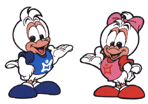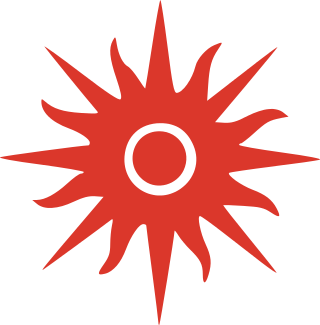
The Asian Games, also known as Asiad, is a continental multi-sport event held every four years for athletes of Asia. The Games were regulated by Asian Games Federation from the first Games in New Delhi, India in 1951, until the 1978 Games. Since the 1982 Games, they have been organized by the Olympic Council of Asia, after the breakup of the Asian Games Federation. The Games are recognized by the International Olympic Committee and are the second largest multi-sport event after the Olympic Games.
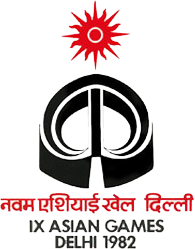
The 9th Asian Games, also known as Delhi 1982, were held from 19 November to 4 December 1982, in Delhi, India. 74 Asian and Asian Games records were broken at the event. This was also the first Asiad to be held under the aegis of the Olympic Council of Asia. Delhi joined Bangkok as the cities to host multiple editions of the Asian Games up to this point. Later, Jakarta and Doha would enter this group.

The 1990 Asian Games, also known as the XI Asiad and the 11th Asian Games (第十一届亚洲运动会) or simply Beijing 1990 (北京1990), were held from September 22 to October 7, 1990, in Beijing, China. This was the first Asian Games held in China.
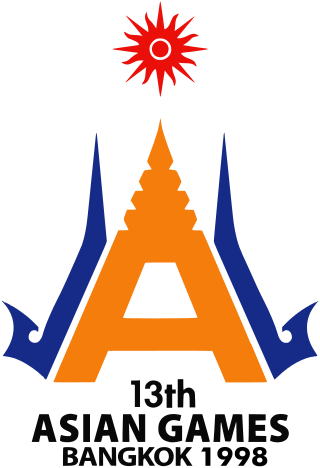
The 1998 Asian Games, officially known as the 13th Asian Games and the XIII Asiad,, or simply Bangkok 1998, was an Asian multi-sport event celebrated in Bangkok, Thailand from December 6 to 20, 1998, with 377 events in 36 sports and disciplines participated by 6,554 athletes across the continent. The sporting events commenced on 30 November 1998, a week earlier than the opening ceremony. It is a last time that the multi-sport event would be held in Bangkok until the 2007 Summer Universiade.

The 1st Asian Winter Games, aso known as Sapporo 1986, were held from March 1 to 8, 1986 in Sapporo, Japan. The Japanese Olympic Committee first suggested the idea of having a continent-wide winter version of the Asian Games in 1982. With Sapporo's expertise and infrastructure available after successfully hosting the 1972 Winter Olympics, the Olympic Council of Asia General Assembly in Seoul in 1984 decided to give Japan the privilege of hosting the first ever Asian Winter Games. Participating in a total of 35 events in seven sports were 430 athletes and officials from seven countries.

The 2nd Asian Winter Games, also known as Sapporo 1990, were held from March 9 to 14, 1990, in Sapporo, Hokkaidō, Japan. India was originally scheduled to host the second edition of the games, but due to technical and financial difficulties it gave up its hosting rights to Japan in 1989. The 2nd Winter Asiad saw three NOCs participating in the games for the first time: Chinese Taipei, Iran and the Philippines.
The 5th Asian Winter Games, also known as Aomori 2003, took place from February 1 to 8, 2003 in Aomori Prefecture, Japan.

The 6th Asian Winter Games (第六届亚洲冬季运动会), also known as Changchun 2007 (长春2007), were held in Changchun, Jilin, China from January 28 to February 4, 2007. The Winter Games are a celebration of Winter sports in Asia. This was the second time that China hosted the Asian Winter Games; the first was in Harbin, Heilongjiang in 1996.

Iran participated in the 1994 Asian Games held in the city of Hiroshima. This country is ranked 6th with 9 gold medals in this edition of the Asiad.mu
The 1994 Asian Games, was a multi-sport event held in Hiroshima, Japan from 2 to 16 October 1994. They were the first Asian Games to be held in a non-capital city. The main theme of this edition was to promote peace and harmony among Asian nations. It was emphasized by the host because the venue was the site of the first atomic bomb attack in 1945. A total of 6,828 athletes from 42 National Olympic Committees (NOCs) participated in these games, competing in 34 sports. Baseball, Karate, Modern Pentathlon and Soft tennis were included for the first time. This medal table ranks the participating NOCs by the number of gold medals won by their athletes.

The 1994 Asian Games also known as XII Asiad were held from October 2 to October 16, 1994 in Hiroshima, Japan. The main theme of this edition was to promote peace and harmony among Asian nations. It was emphasized by the host because the venue was the site of the atomic bomb attack 49 years earlier. Due to the First Gulf War, Iraq was suspended from the games.

Kazakhstan participated in the 1994 Asian Games from October 2 to October 16, 1994 in Hiroshima, Japan, which was the country's first appearance at the Asian Games since gaining independence.
The East Asian Games, also known as the Asian Development Games were multi-sport events organized by the Japan Association of Athletics Federations (JAAA). The games were meant to be a replacement to the cancelled 1938 Far Eastern Championship Games and 1940 Summer Olympics originally to be hosted by Japan, and also served as a propaganda tool for Japan.
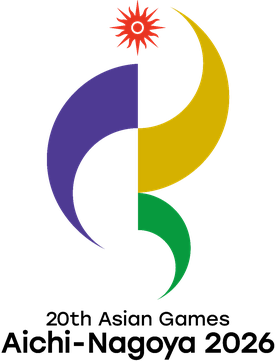
The 2026 Asian Games (2026年アジア競技大会), also known as 20th Asian Games (第20回アジア競技大会) and Aichi-Nagoya 2026 (愛知/名古屋2026), will be a multi-sport event celebrated around the Aichi Prefecture in Japan from 19 September to 4 October 2026. The prefecture capital Nagoya will be the epicenter of the events. Nagoya will be the third Japanese city to host the Asian Games, after Tokyo in 1958 and Hiroshima in 1994. The event is set to return to its traditional 4-year cycle, after the 2022 Asian Games in Hangzhou, China were postponed to 2023 due to the COVID-19 pandemic.
Gao Jiamin is a retired professional wushu taolu athlete and taijiquan practitioner originally from China. She achieved an impressive competitive career throughout the 1990s and became known as the "Queen of Taiji". Gao has won 32 gold medals in a variety of competitions including the World Wushu Championships, Asian Games, East Asian Games, National Games of China, and various other international and national competitions.
The women's taijiquan competition at the 1994 Asian Games in Hiroshima, Japan was held on 14 October at the Aki Ward Sports Center.
The women's nanquan competition at the 1994 Asian Games in Hiroshima, Japan was held on 13 October at the Aki Ward Sports Center.
The men's nanquan competition at the 1994 Asian Games in Hiroshima, Japan was held on 13 October at Aki Ward Sports Center.
The men's taijiquan competition at the 1994 Asian Games in Hiroshima, Japan was held on 12 October at Aki Ward Sports Center.
Xi Cheng Qing is a retired wushu taolu athlete from Macau. She is a triple medalist at the World Wushu Championships, she won the silver medal in women's changquan at the 2008 Beijing Wushu Tournament, and she is a double medalist at the East Asian Games and the Asian Wushu Championships.

